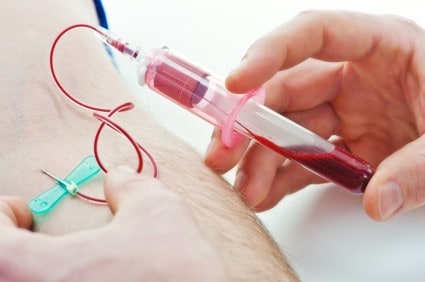Our sport was shaken to the core recently by the leak of the International Cycling Union’s (UCI) now infamous “suspicious list”. The list, leaked to French sports newspaper L’Equipe, ranked all 198 riders from last year’s Tour de France on a scale of doping suspicion, from zero to 10. With ten the highest and zero the lowest, the ratings were based on readings from each rider’s biological blood passport profile before the Tour started. They included the latest blood tests two days before the 2010 race.
The tests are carried out on all riders before every major Tour, with the results and biological profiles used to determine the testing plans during the race.
UCI President Pat McQuaid has spoken of his regret at the leak and subsequent publication of the “index of suspicion.” But he has defended how the list was compiled and insisted that the blood passport program is an essential tool in the fight to kick out cheats from the sport.
So is he right?
Background: The Blood Passport Program
Blood passport profiling was introduced for professional cyclists in January 2008 to great fanfare. It was hailed as the answer to cycling’s doping problems because it was centered on long-term blood and steroid profiling. The thinking was that having such information to hand would allow the authorities to take action against riders whose natural values highlighted suspicious fluctuations, even if they did not test positive for a specifically banned substance. The sporting community applauded this innovative new approach and the extraordinary possibilities it offered.
The results have been evolutionary rather than revolutionary, but UCI is finally beginning to reap the benefits of its program. Last month, Slovenian cyclist Tadej Valjavec was given a two-year ban for doping. The Court of Arbitration for Sport found that Valjavec’s “anti-doping tests performed in April and August 2009 revealed abnormalities in the context of the athlete’s biological passport to a degree which was entirely consistent with blood manipulation”.
It was a third successive legal victory for the UCI at the sport’s highest court in cases involving its flagship anti-doping blood program.
The Way Forward
While I think it is sad that this confidential information was leaked to a newspaper, I firmly support the cycling blood passport program.
Prioritizing which riders should be given more attention makes a lot of common sense. The probability of a positive test is a lot higher when you test the riders who are the most suspicious. That is the fundamental concept of the blood passport scheme.
Last year I was at the Scandinavian Congress of Sports Medicine, where I visited a session about anti-doping. It included a talk by Anne Gripper, who was manager of UCI’s anti-doping team when the blood passport was introduced back in 2008. She highlighted several cases involving both clean and suspicious riders, and these examples illustrated to me why the blood passport makes perfect sense.
As a medical doctor, I am well used to prioritizing which blood samples should be used on which patients. From a cost and benefits point of view, this prioritization system does not differ too much from what the UCI is trying to achieve.
The blood passport scheme is a great tool to get more value for the limited resources available for anti-doping. The information about this program should never have ended up at the media offices, and I have no words for that. I also feel incredibly sorry for all the riders and teams named on this list.
But while the UCI should be sorry for how this information was leaked to the press, it should not apologize for how the data is compiled or interpreted. The list is a vital working document that establishes an order of priority for carrying out doping tests.
This prioritization is crucial: it is established based upon many solid indications and not upon mere coincidence or conjecture.
So there is no doubt in my mind that the blood passport scheme could be the tool needed to eventually wipe away the scourge of doping from our fantastic sport.


anything that helps prevent cheating has to be good. This is a good start
this is a very nice sport. Lets keep it honest.